1. Washing the Car
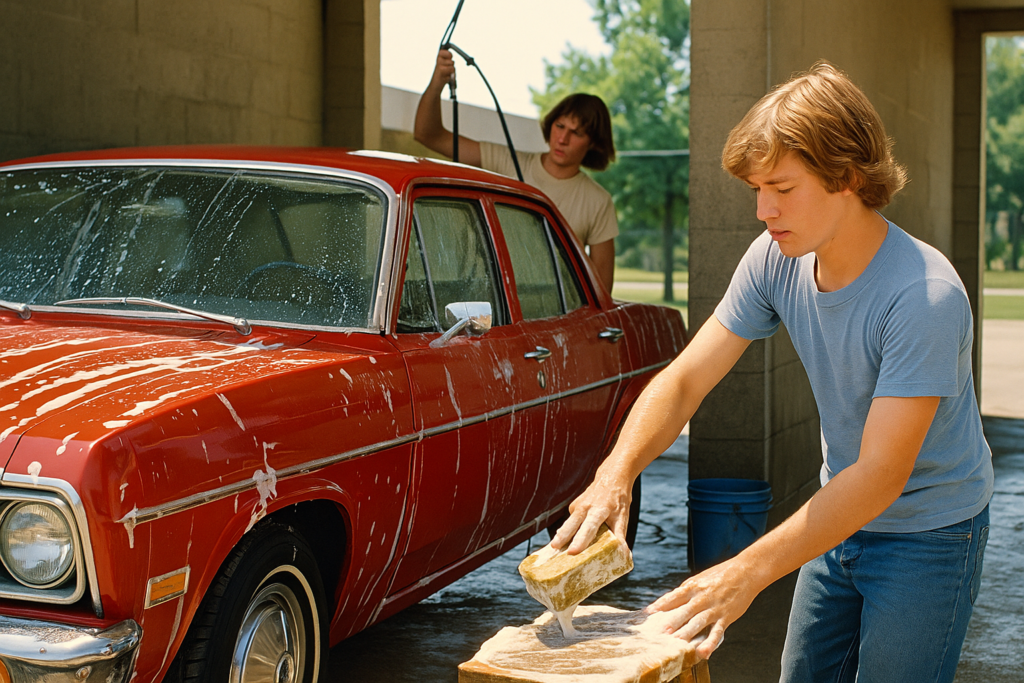
Before automatic car washes, gathering the bucket, sponge, and hose was a weekend ritual. Washing the family car by hand wasn’t just about keeping it shiny; it was about teamwork, patience, and pride in a job well done. Kids learned to work carefully, scrubbing without scratching, rinsing without missing spots, and drying to avoid streaks. Sometimes, finishing the car meant you earned the right to drive it later. Beyond the suds and sweat, it built appreciation for effort and care, traits that stick long after the water dries.
2. Making Your Bed
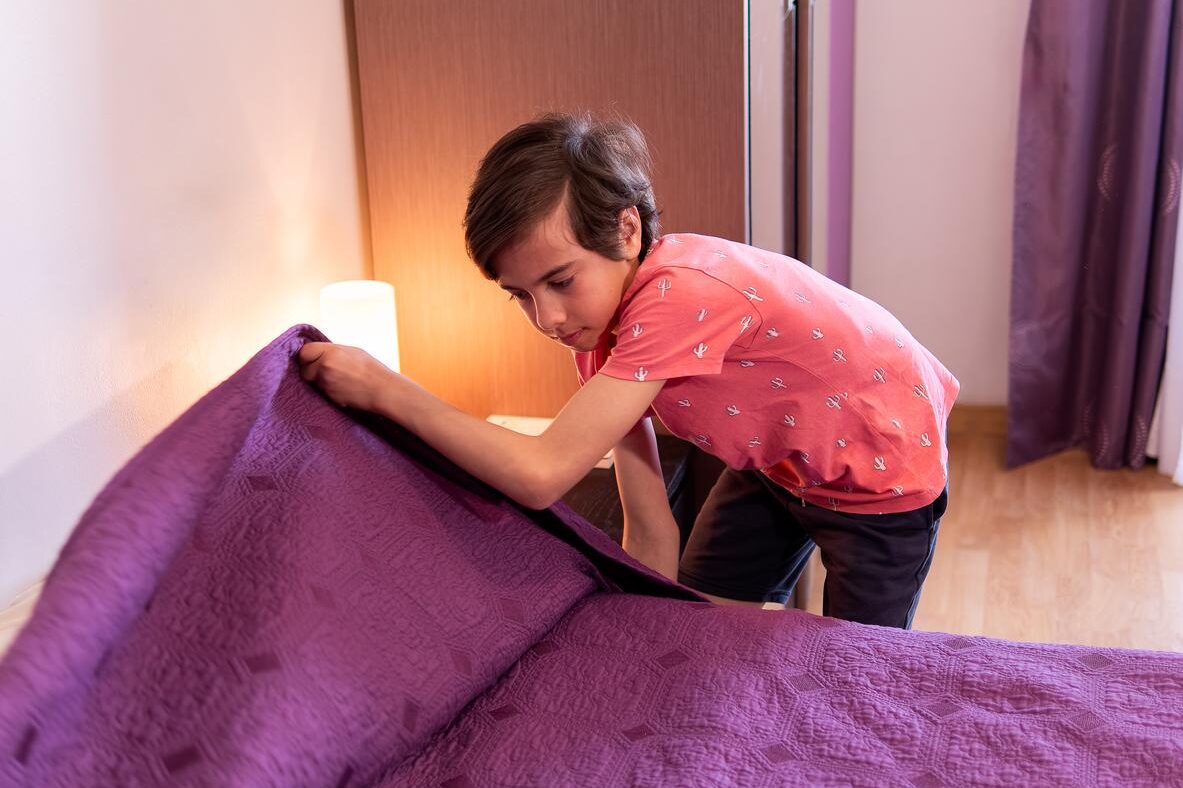
This small morning chore carried more weight than it seemed. Our grandparents knew that making the bed was less about tucking in sheets and more about starting the day with order and discipline. Psychologists today say that completing a simple task first thing in the morning creates a sense of accomplishment that sets the tone for the rest of the day. It teaches consistency, responsibility, and even attention to detail. Plus, coming back to a neatly made bed at night provides a little reward that encourages self-respect. That’s why military training still includes this ritual, it’s a lesson in showing up for yourself.
3. Folding Laundry
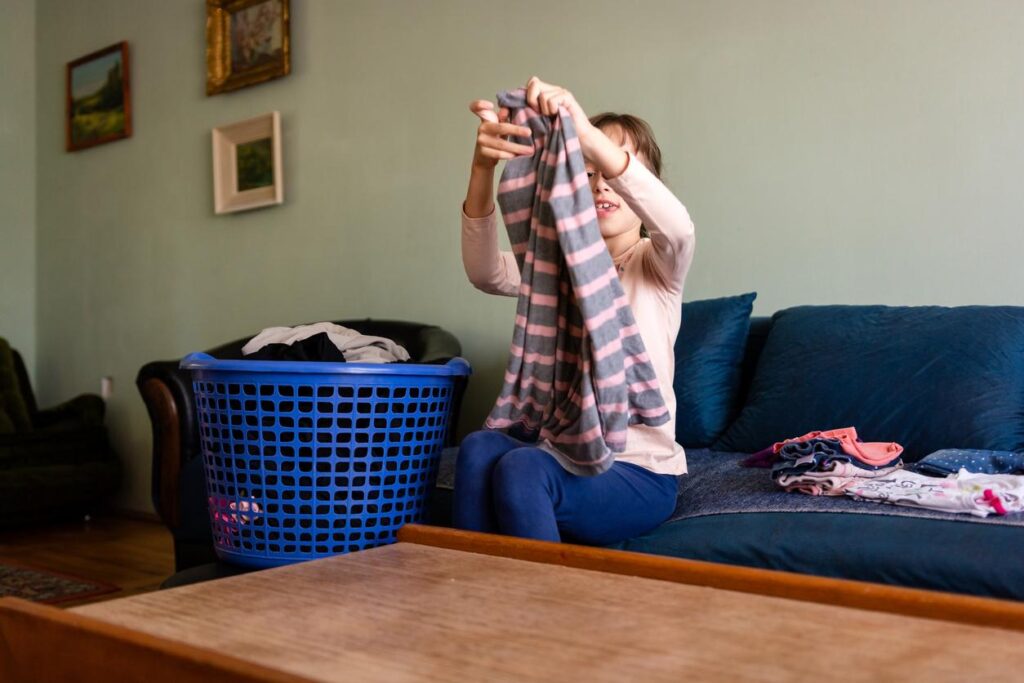
Perfectly folded clothes meant more than neat stacks; it showed focus and respect for shared space. Grandparents expected shirts squared, socks matched, and towels lined up like soldiers. The task taught patience and precision, especially when re-folding something that didn’t pass inspection. Psychologists now note that such repetitive, detail-oriented chores improve mindfulness and fine motor skills. Kids learned that doing something “good enough” wasn’t always enough, care mattered. And in the end, pulling a crisp shirt from the pile gave a sense of order that spilled into other parts of life.
4. Weeding the Garden
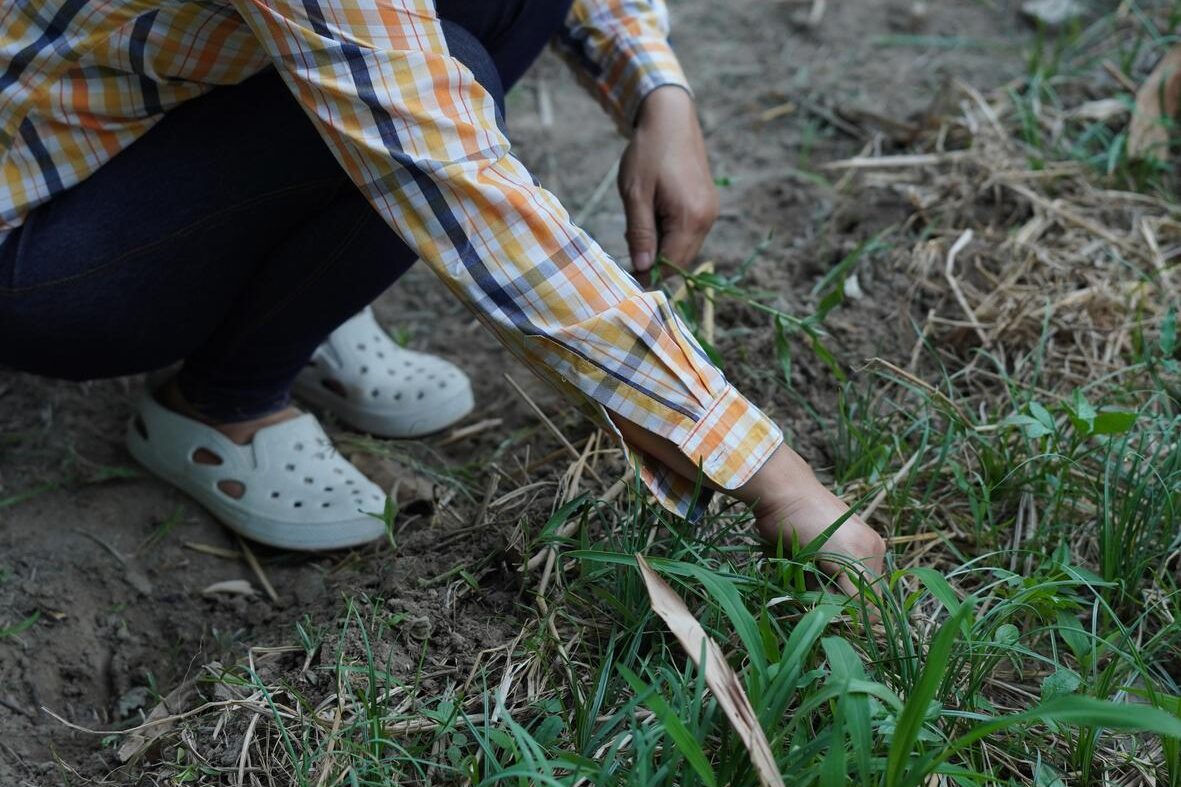
Garden weeding was the ultimate test of patience. No shortcuts, no gadgets, just hands in the dirt, bugs buzzing, and hours of bending over pulling stubborn roots. It wasn’t glamorous, but it taught resilience, focus, and the value of delayed gratification. The garden rewarded persistence, showing how small efforts added up to food on the table or flowers in bloom. Science backs this up: gardening reduces stress, strengthens attention span, and connects people with nature. Our grandparents weren’t just keeping tidy rows, they were teaching endurance and the satisfaction of seeing hard work grow.
5. Ironing Clothes

Standing over a hot iron required focus, precision, and calmness, skills that spilled into everyday life. Grandparents believed wrinkled clothes showed a lack of respect for yourself and others. Learning to press shirts and pants wasn’t just about appearance; it was about learning to handle responsibility and heat, both literally and figuratively. Today, psychologists point out that mastering such hands-on skills boosts confidence and attention to detail. The careful back-and-forth motion also created a rhythm that calmed the mind. In many ways, ironing wasn’t just about looking sharp, it was practice in patience and pride.
6. Polishing Shoes
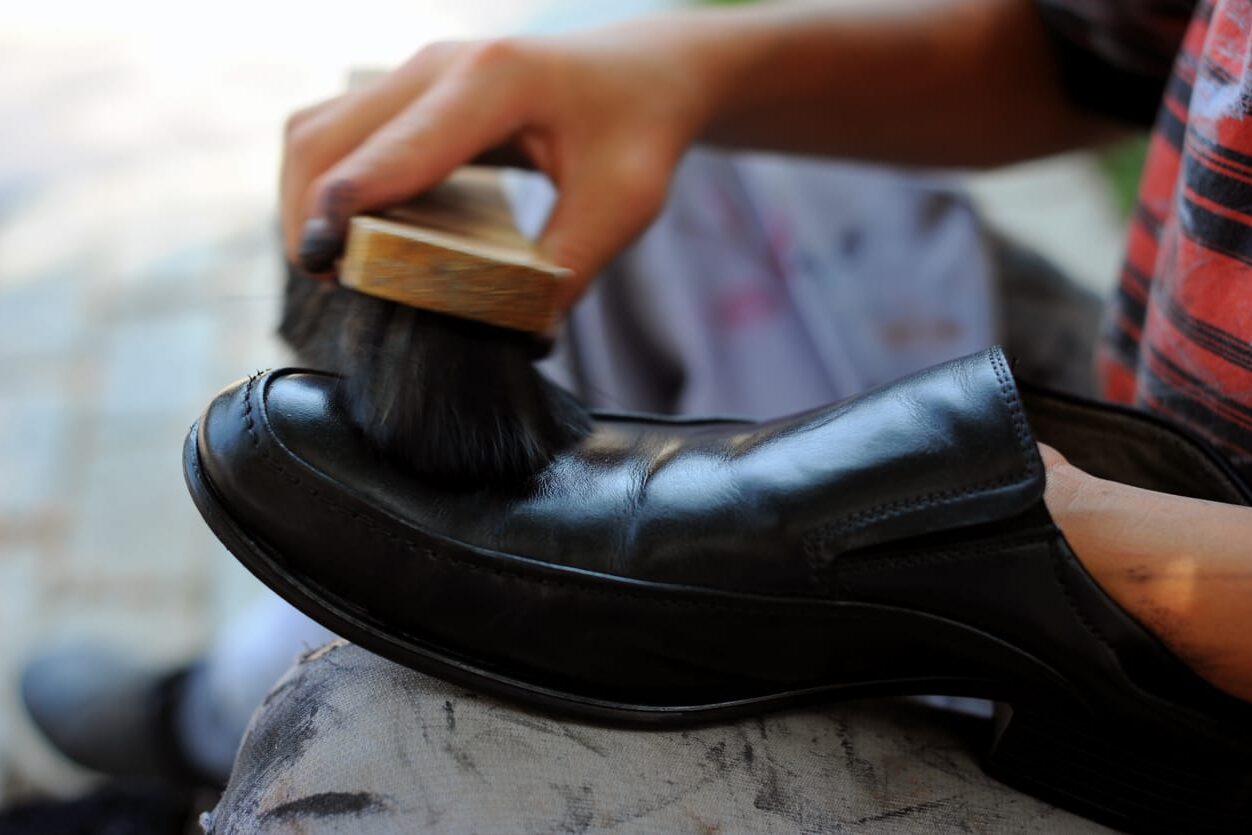
Shoeshine kits with brushes, cloths, and tins of polish were once household staples, and kids were expected to know how to use them. Polishing shoes taught attention to detail and pride in appearance, but it also emphasized the value of care, good leather could last decades if treated properly. The process took patience: buffing, brushing, and shining until the shoes gleamed. Psychologists today say such repetitive chores help develop focus and discipline. For grandparents, polished shoes weren’t just about looks; they were a sign of respect, both for yourself and for the people you met.
7. Cleaning the Bathroom

Few chores built grit faster than scrubbing sinks, bathtubs, and especially toilets. Grandparents believed that if you could tackle the dirtiest job in the house, you could handle almost anything. Cleaning the bathroom demanded thoroughness and persistence, missing a corner wasn’t acceptable. Today, experts point out that learning to face uncomfortable or unpleasant tasks builds resilience and responsibility. It also creates respect for shared spaces, since everyone benefits from the effort. For many kids, bathroom duty was the chore that shaped their understanding of real responsibility.
8. Setting the Table

This daily routine wasn’t just about forks and spoons, it was about manners, order, and preparation. Grandparents expected the plates, silverware, and napkins to be placed just so, with care and consistency. Kids learned to pay attention to detail, follow tradition, and contribute to the rhythm of family life. Studies now show that children who take part in shared meals gain social and emotional skills, and setting the table is part of that bonding. It reinforced that meals were more than food; they were moments of connection and respect.
9. Doing Dishes by Hand
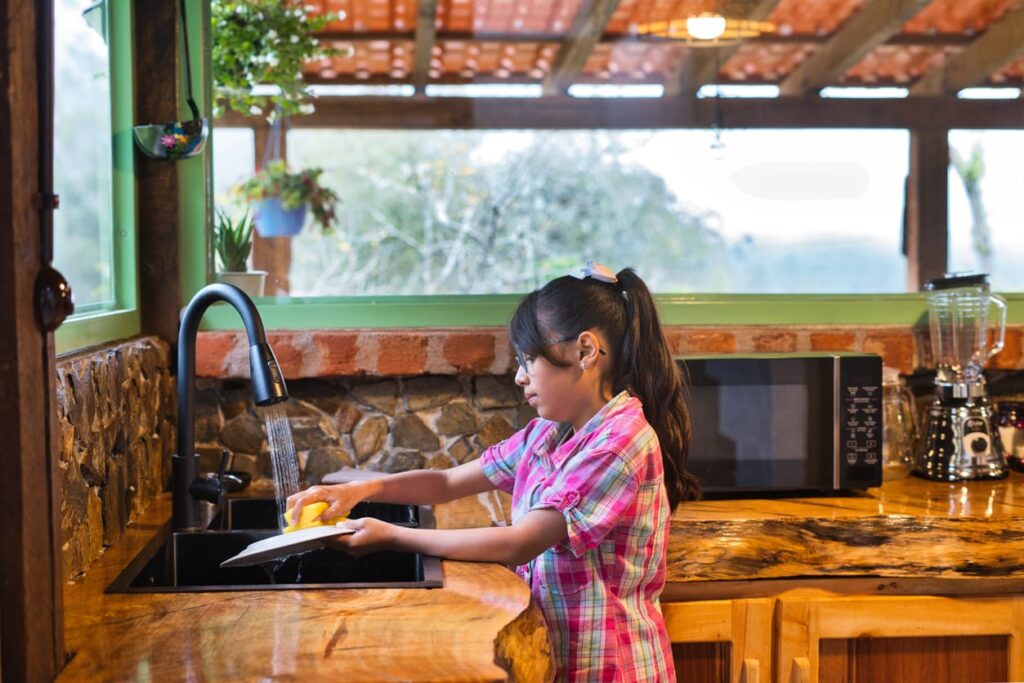
Before dishwashers were common, soapy sinks and stacks of plates were a nightly reality. Doing dishes by hand taught patience, teamwork, and accountability. One person washed, another dried, and sometimes another put everything away. The hot water and suds made it more than just cleanup, it was a lesson in persistence and working together to finish a task. Psychologists say such routines build cooperation and teach that responsibility doesn’t always come with reward. For kids, it also meant contributing to the family effort, no excuses allowed.
10. Taking Out the Trash
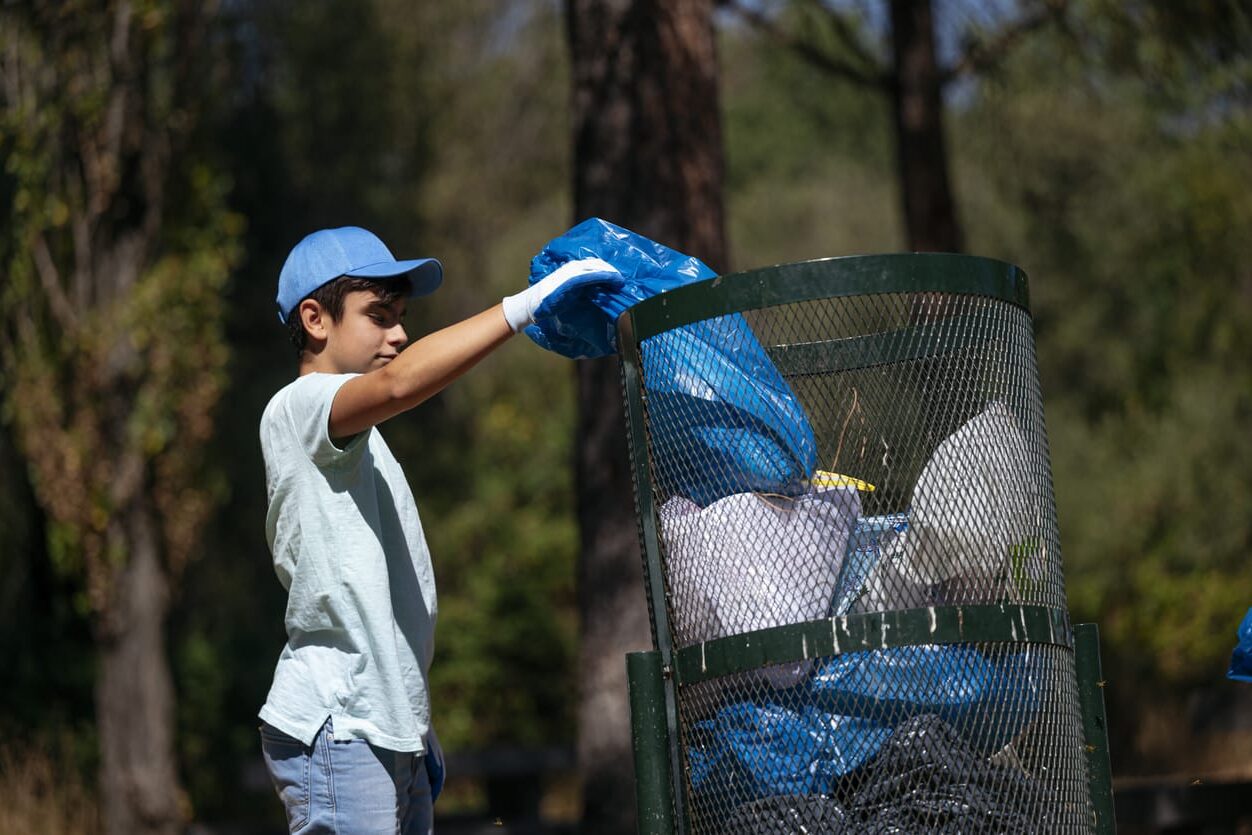
Grandparents didn’t wait for reminders; they expected kids to take out the trash as part of their daily responsibility. It wasn’t a glamorous chore, but it was a test of initiative, doing what needed to be done without being asked. Carrying out the garbage, tying up bags, and replacing the liner taught foresight and dependability. Modern psychology echoes this: initiative is a key part of maturity, and learning it early creates self-starters later in life. Trash duty showed that responsibility wasn’t about recognition, but about doing your part.
11. Raking Leaves
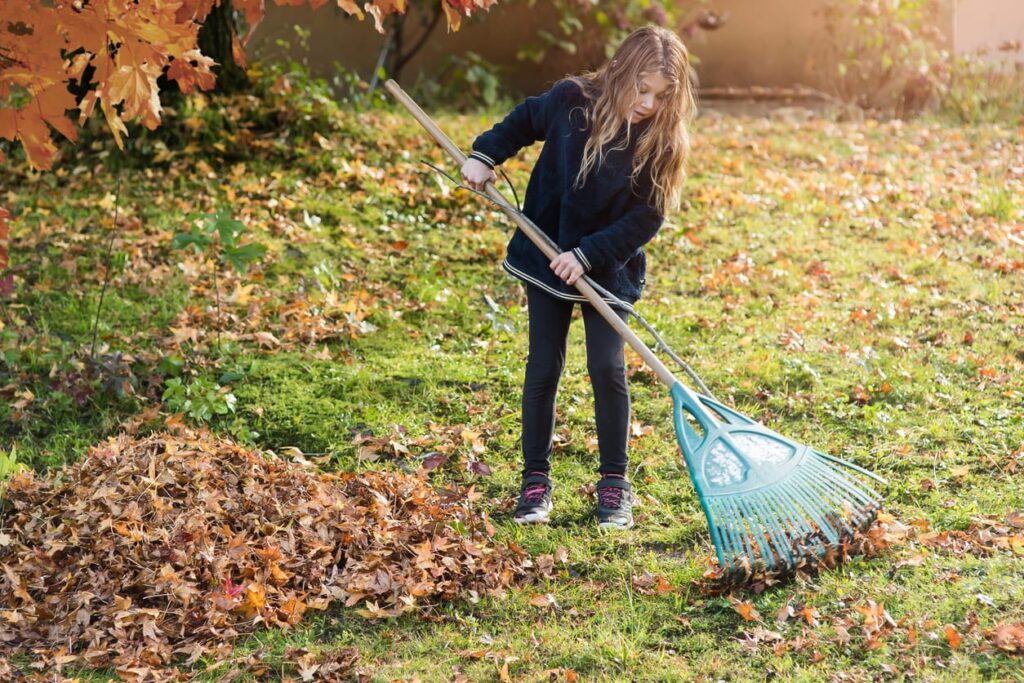
Fall afternoons often meant raking the yard into big, neat piles, and then jumping into them before starting all over again. It was a chore that mixed hard work with a little joy. Grandparents saw it as teaching responsibility while letting kids enjoy the payoff of their effort. Raking required patience, coordination, and stamina, especially when the wind undid your progress. Today, experts say outdoor chores build physical fitness and connection with nature. The mix of discipline and play made raking leaves memorable, even if you ended the day covered in twigs.
12. Sweeping the Porch
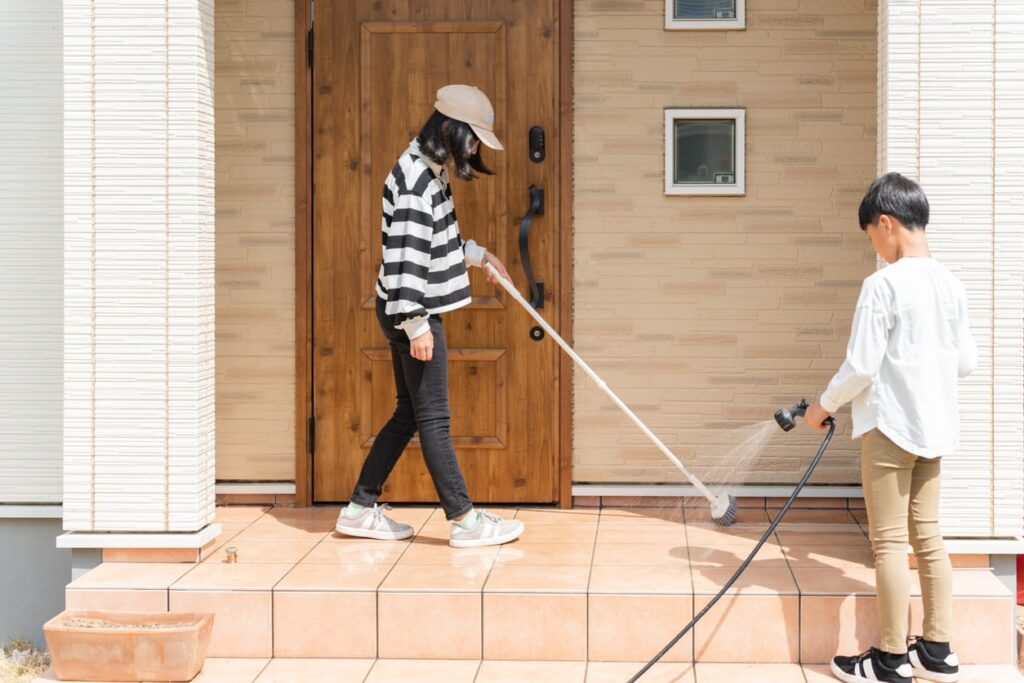
Keeping the porch or sidewalk swept wasn’t about tidiness alone, it was about pride in how the home looked from the outside. Kids learned that cleanliness started before anyone walked in the door. Sweeping taught persistence and thoroughness, since leaves, dust, and dirt always came back. Studies now show that small daily rituals like this build a sense of order and belonging. For grandparents, a clean porch said you cared about your family and your neighbors. It was a quiet but powerful lesson in community pride.
13. Mowing the Lawn
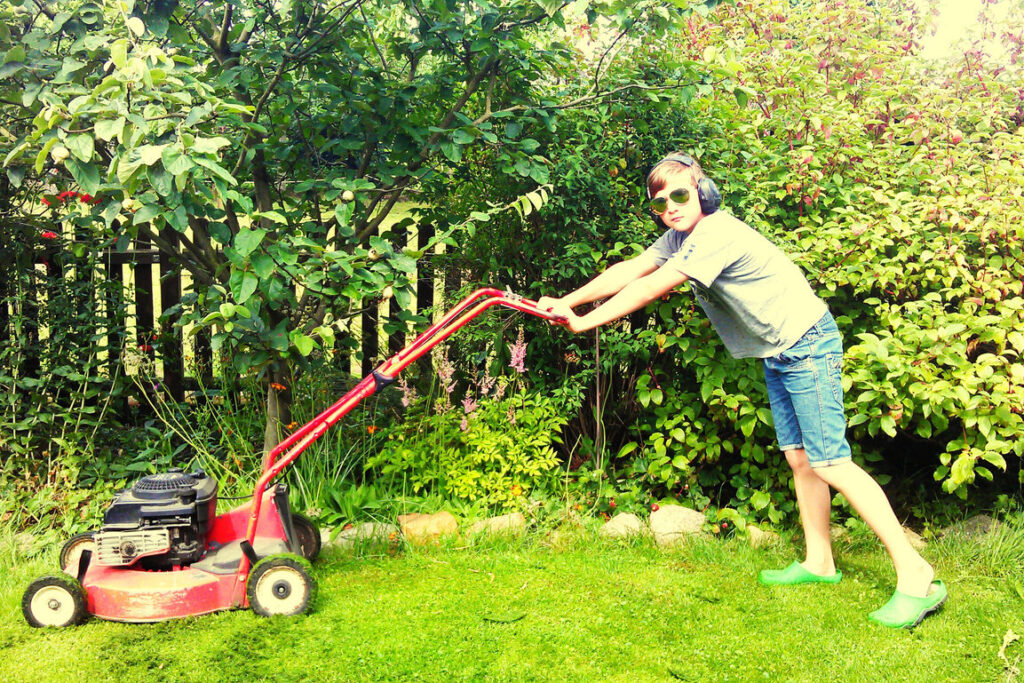
Before self-propelled mowers, pushing one across thick summer grass took real effort. Mowing the lawn wasn’t just about neatness, it was a responsibility that required consistency, patience, and sometimes endurance in the heat. Kids learned to watch for obstacles, maintain straight lines, and take pride in a finished job. Today, psychologists note that physical outdoor chores improve resilience and confidence. For many, the reward wasn’t just the smell of fresh-cut grass, it was knowing you had helped care for the family home.
14. Carrying Groceries
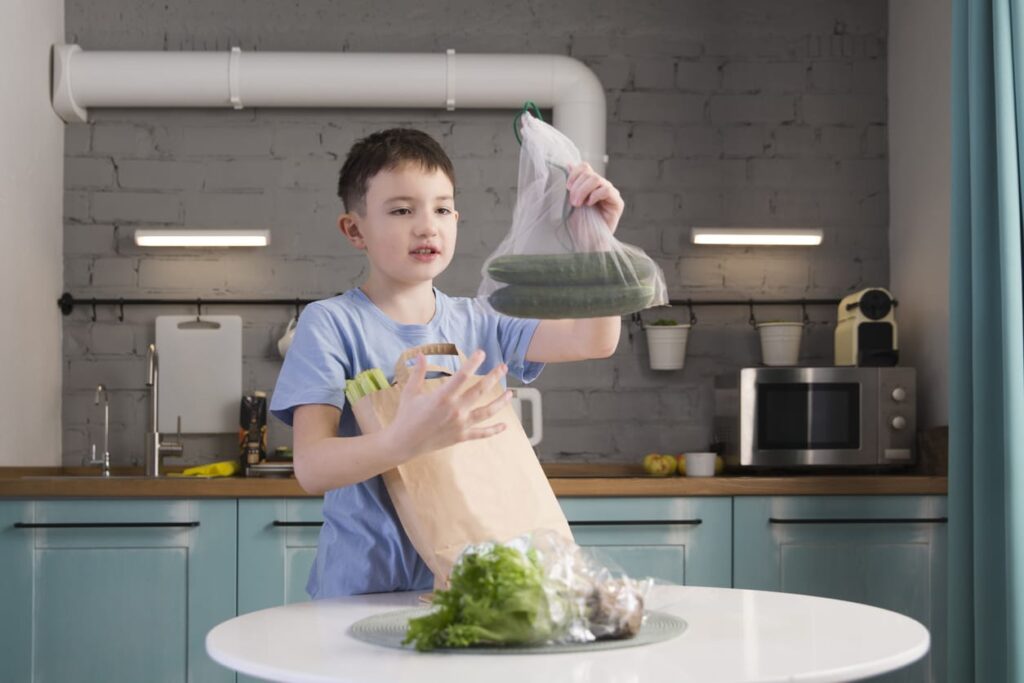
When grandparents pulled into the driveway, kids were expected to spring into action, no matter how many trips it took. Carrying groceries built responsibility and teamwork, and it showed kids how to contribute without complaint. Heavy bags taught strength and coordination, while lighter ones gave younger siblings a role to play. Experts say such contributions build family bonds and a sense of usefulness. The message was clear: when work needed to be done, everyone pitched in. Even six trips to the car taught reliability.
15. Dusting Furniture
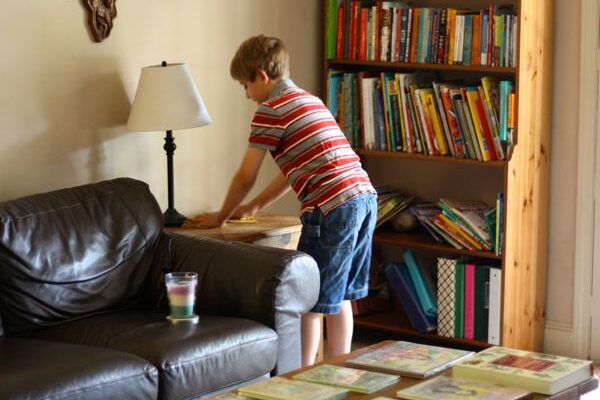
Dusting may not have been glamorous, but it was noticed when it wasn’t done. Kids learned to move carefully around lamps, picture frames, and keepsakes, which taught respect for the home and its belongings. The chore required patience, thoroughness, and a steady hand, especially when polishing delicate surfaces. Today, psychologists link such attention-to-detail chores with mindfulness and focus. For grandparents, dusting wasn’t just about clean shelves, it was about teaching kids to notice the small things that mattered.
16. Helping Siblings Get Ready
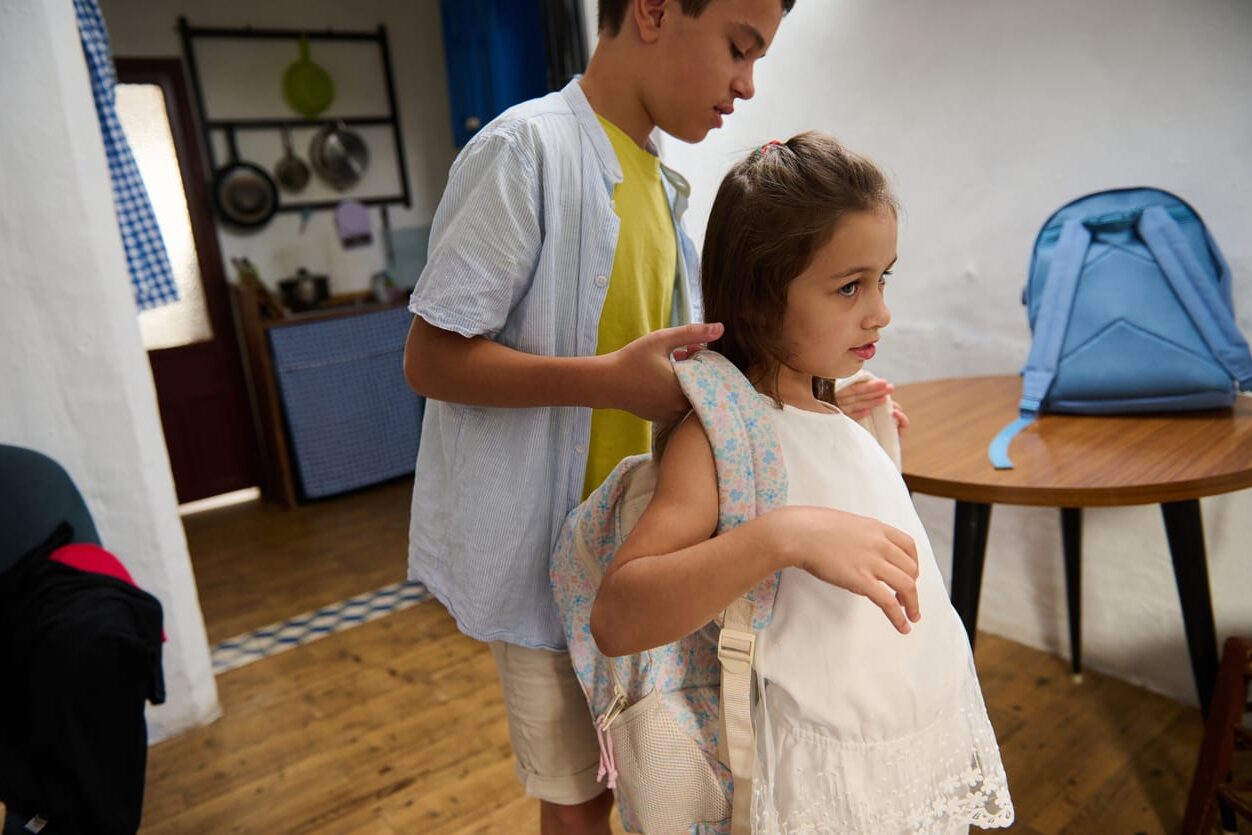
Older kids were often expected to help younger brothers and sisters dress, pack schoolbags, or brush hair before the day began. It wasn’t about babysitting, it was about family responsibility. This chore taught patience, empathy, and leadership, as well as the ability to handle small frustrations without giving up. Modern research shows that helping siblings fosters cooperation and emotional maturity. For grandparents, it was a way of making sure older kids understood that family meant stepping up for one another, even in small, daily ways.
17. Cooking or Stirring Dinner
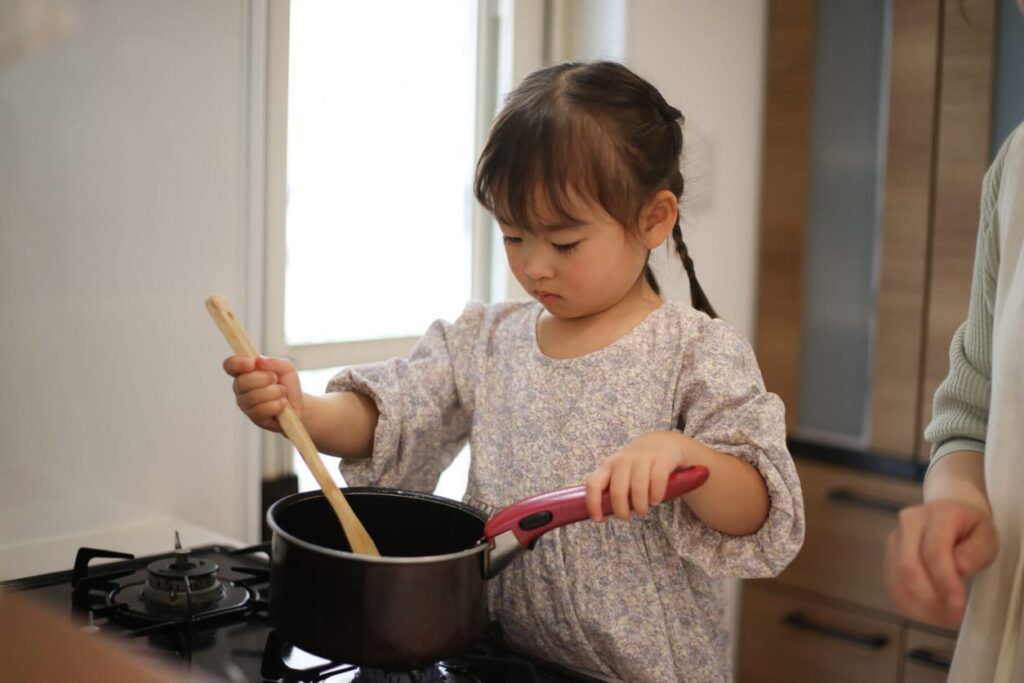
Whether it was peeling potatoes, stirring a pot, or setting ingredients in place, children were often given small but important roles in the kitchen. Under watchful eyes, they learned timing, care, and teamwork. Stirring too fast made a mess, while forgetting to watch the pot meant it might burn. Psychologists today note that cooking builds problem-solving and confidence, and creates a sense of contribution to family life. For grandparents, this chore wasn’t just about food, it was a way of teaching life skills that would carry into adulthood.
18. Hanging Laundry Outside
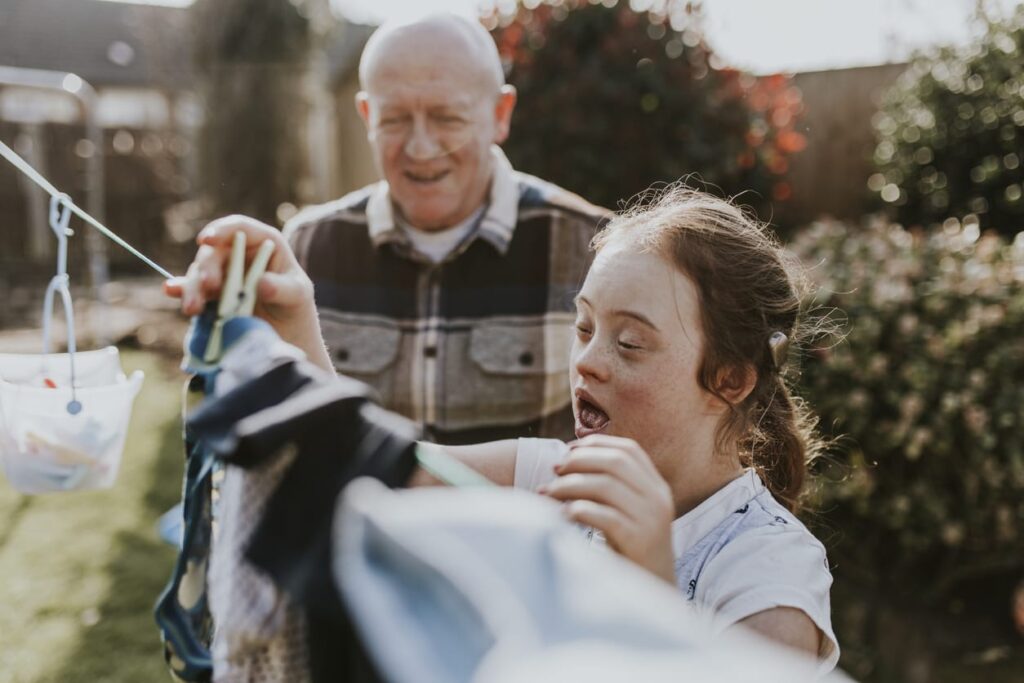
Long before dryers were standard, hanging clothes on the line was a daily routine. Kids learned to shake out garments, use clothespins correctly, and space items so the sun and wind could work their magic. It taught patience and attention to detail, since clothes had to be checked for dryness and brought in before rain or dusk. Experts say that engaging with natural rhythms fosters mindfulness. Grandparents also knew the fresh smell of sun-dried sheets couldn’t be replicated indoors, making the task worth the effort.
19. Shaking Rugs or Beating Carpets
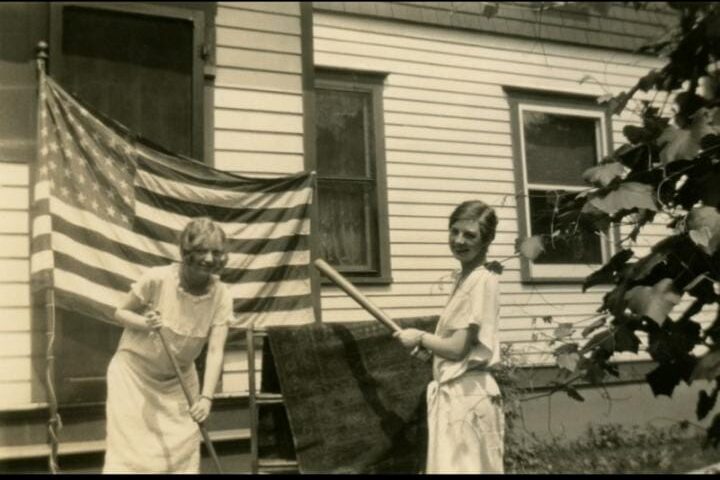
Dragging rugs outside and beating out the dust was exhausting work, but it was oddly satisfying. Kids swung heavy beaters until clouds of dust floated away, watching a dull rug brighten again. This chore demanded stamina and persistence, but it also showed the value of tackling big tasks step by step. Psychologists now say that physical household labor builds resilience and stress relief, much like exercise. For grandparents, the ritual wasn’t just about cleanliness, it was about grit and thoroughness.
20. Fixing Things Around the House

From holding a flashlight while someone worked under the sink to learning how to use a screwdriver, kids were expected to help with repairs. These moments weren’t just about fixing leaks or squeaky hinges, they were about learning problem-solving, patience, and practical skills. Children picked up lessons in how things worked, how to stay calm when problems arose, and how to keep trying until the job was done. Studies show that hands-on problem solving builds confidence and independence. For grandparents, fixing things was a family effort, not just a chore.
This story was first published on Daily FETCH


